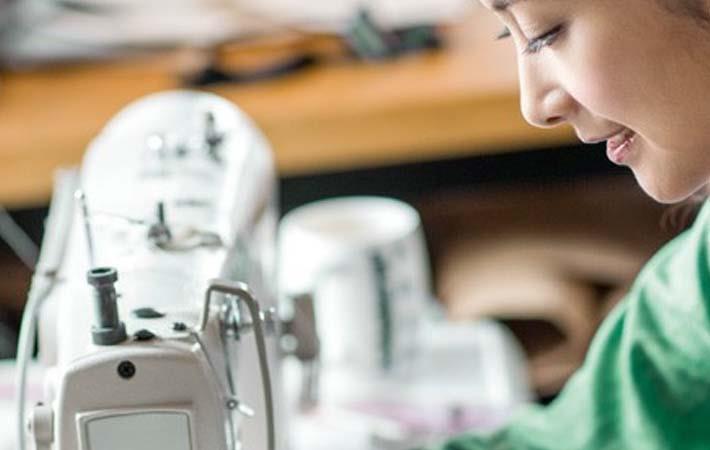Interviews
Oeko-Tex updates guidelines and standards for 2018
05 Apr '18
3 min read

Courtesy: Oeko-Tex
To support consumer protection and sustainability along the textile value creation chain in 2018, Oeko-Tex has announced modifications of the existing guidelines in the Oeko-Tex product portfolio. The guidelines came into effect on April 1, 2018, following a three-month transition period, and are valid for all certification systems and other services.
The updating of the Oeko-Tex standards and guidelines is based on a continual exchange of experiences with stakeholders from the industry, cooperation with initiatives and the monitoring of statutory regulations. The work by the Oeko-Tex expert groups takes into account on-going scientific innovations and findings as well as current market developments.
Textiles made of organic cotton or with organic cotton parts must undergo an additional laboratory test for genetically modified organisms (GMO), if the applicant company intends to recognise its articles with corresponding quality designations such as “Organic” or “Bio” on the Standard 100 certificate. The laboratory test proves whether or not genetic engineering has been applied to the cotton materials used. The molecular biology laboratory test that has been specifically optimised for textiles will provide certainty for product suppliers and consumers in the future within the framework of product certification in accordance with Standard 100 by Oeko-Tex.
The previous two-level process for issuing an Eco Passport certificate has been expanded to include an additional level. Chemicals, colourants, and other auxiliaries for textile production must still undergo a comparison with the Oeko-Tex RSL and MRSL (level 1) and also an analytical test for possible contaminations (level 2). During an on-site check of the applicant company, Oeko-Tex now checks whether the applicant or producer is actually compliant with the information provided with regard to the manufacturing conditions. The company visit means that Oeko-Tex is able to take a close look at both environmental management and the measures taken with regard to product stewardship.
Three-level Eco Passport certification is possible from summer 2018. Companies who have their chemicals certified can currently choose between two certification models - the existing two-level test or the new three-level verification including CAS number comparison, laboratory test and on-site company visit.
From 2019 onwards, the three-level process will be mandatory for all certifications in line with Eco Passport by Oeko-Tex. With the three-level certification process, the ZDHC (Zero Discharge of Hazardous Chemicals) accepts the Eco Passport by Oeko-Tex as proof of conformance of certified chemicals with Level 3 of the ZDHC list of restricted substances for textile production (MRSL).
The comparability of the Detox To Zero MRSL with the valid MRSL for STeP by Oeko-Tex certification means that Detox To Zero can be 100 per cent integrated in STeP. Detox To Zero customers can switch to STeP at any time.
Bisphenol A, the aromatic amine aniline and additional alkylphenols (pentyl- and heptylphenol) are now included in the Leather Standard. The minimum requirements and criteria for issuing the Made In Green by Oeko-Tex product label have been revised. The benefits of the new definition are improved comprehensibility and reduced time required for attaining the label. (GK)
The updating of the Oeko-Tex standards and guidelines is based on a continual exchange of experiences with stakeholders from the industry, cooperation with initiatives and the monitoring of statutory regulations. The work by the Oeko-Tex expert groups takes into account on-going scientific innovations and findings as well as current market developments.
Textiles made of organic cotton or with organic cotton parts must undergo an additional laboratory test for genetically modified organisms (GMO), if the applicant company intends to recognise its articles with corresponding quality designations such as “Organic” or “Bio” on the Standard 100 certificate. The laboratory test proves whether or not genetic engineering has been applied to the cotton materials used. The molecular biology laboratory test that has been specifically optimised for textiles will provide certainty for product suppliers and consumers in the future within the framework of product certification in accordance with Standard 100 by Oeko-Tex.
The previous two-level process for issuing an Eco Passport certificate has been expanded to include an additional level. Chemicals, colourants, and other auxiliaries for textile production must still undergo a comparison with the Oeko-Tex RSL and MRSL (level 1) and also an analytical test for possible contaminations (level 2). During an on-site check of the applicant company, Oeko-Tex now checks whether the applicant or producer is actually compliant with the information provided with regard to the manufacturing conditions. The company visit means that Oeko-Tex is able to take a close look at both environmental management and the measures taken with regard to product stewardship.
Three-level Eco Passport certification is possible from summer 2018. Companies who have their chemicals certified can currently choose between two certification models - the existing two-level test or the new three-level verification including CAS number comparison, laboratory test and on-site company visit.
From 2019 onwards, the three-level process will be mandatory for all certifications in line with Eco Passport by Oeko-Tex. With the three-level certification process, the ZDHC (Zero Discharge of Hazardous Chemicals) accepts the Eco Passport by Oeko-Tex as proof of conformance of certified chemicals with Level 3 of the ZDHC list of restricted substances for textile production (MRSL).
The comparability of the Detox To Zero MRSL with the valid MRSL for STeP by Oeko-Tex certification means that Detox To Zero can be 100 per cent integrated in STeP. Detox To Zero customers can switch to STeP at any time.
Bisphenol A, the aromatic amine aniline and additional alkylphenols (pentyl- and heptylphenol) are now included in the Leather Standard. The minimum requirements and criteria for issuing the Made In Green by Oeko-Tex product label have been revised. The benefits of the new definition are improved comprehensibility and reduced time required for attaining the label. (GK)
Fibre2Fashion News Desk – India
Popular News
Leave your Comments
Editor’s Pick
































-Ltd..jpg?tr=w-120,h-60,c-at_max,cm-pad_resize,bg-ffffff)





.jpg?tr=w-120,h-60,c-at_max,cm-pad_resize,bg-ffffff)
.jpg?tr=w-120,h-60,c-at_max,cm-pad_resize,bg-ffffff)






